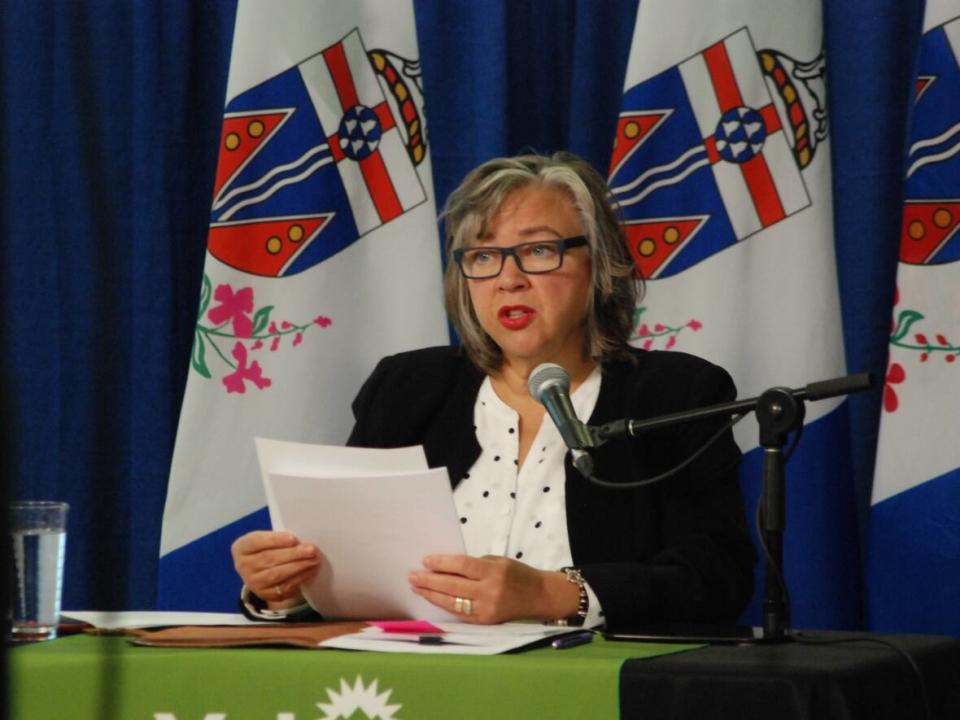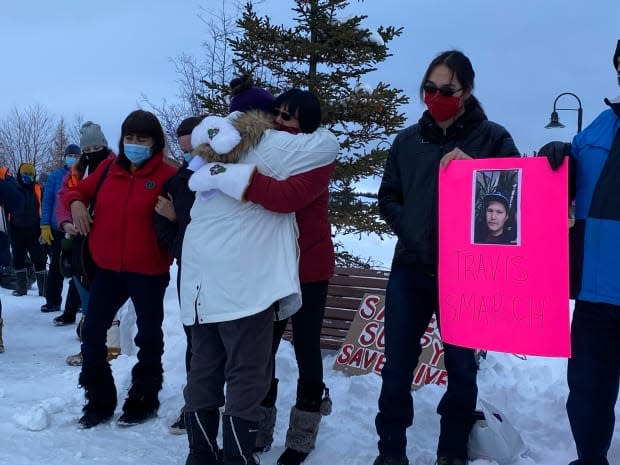Yukon to declare substance use emergency, says health minister

The Yukon government is set to declare a substance use emergency, according to Health Minister Tracy-Anne McPhee.
McPhee told CBC's Elyn Jones, host of Yukon Morning, on Tuesday that she made the recommendation during a meeting with leaders on Friday.
"We have an absolute health emergency here in the territory," McPhee said.
The purpose of the substance use emergency declaration, McPhee explained, is to bolster addiction and mental wellness services across the territory. This could include drug testing capacity in communities and better resourced land-based treatments.
The move isn't about getting tough on crime, McPhee said. Rather it's a way to support communities reeling from the crisis.
"There are services, there are ways in which we can support individuals who are addicted to these drugs and who choose to use them and we want to make sure that we understand and shift the focus," she said.
"We need to know that this is a harm reduction approach and that this is a health emergency here in the territory."
McPhee said the declaration will be made in a matter of days.

She said the territory's 2022-2023 budget will have proposals to increase resources for the RCMP, for the mental wellness substance use units, for the safe consumption site, and for the safe supply program.
"We're looking at an additional outreach van, and a new, updated opioid action plan will encompass these commitments and commitment to the FASD [Fetal Alcohol Spectrum Disorder] action plan and the MMIWG [Missing and Murdered Indigenous Women and Girls] calls to action," she said.
McPhee said the 2022-23 capital budget also sets out $10 million for the short stay psychiatric unit which will be completed at Whitehorse General Hospital.
Last week, during a news conference, McPhee also said the use of toxic drugs continues to be a serious concern in the territory, which is also "witnessing an increase in drugs containing benzodiazepines," more commonly known as "benzos."
Yukon's chief coroner has said 23 people died from illicit drugs last year. There have been three drug-related deaths already this year. A fourth death is also being investigated. The coroner said at least two of these deaths were connected to opioids. Over the weekend, vigils and marches were held across the territory to honour people who have lost their lives to addiction.
In a news release last Wednesday, the Carcross/Tagish First Nations declared a state of emergency in connection to the drug crisis.
In November, Heather Jones, chief coroner for the territory, said the Yukon had the highest rate of deaths due to opioids in the country, at 48.4 deaths per 100,000 people. At the time, Jones said country-wide, Canada has a rate of 19.4 deaths from opioids per 100,000 people, based on national data compiled from chief coroner and chief medical examiner offices across the country.
Also in November, some Mayo, Yukon, residents wanted the territory to call a state of emergency over the number of recent deaths from substance abuse and suicide.

 Yahoo Movies
Yahoo Movies 